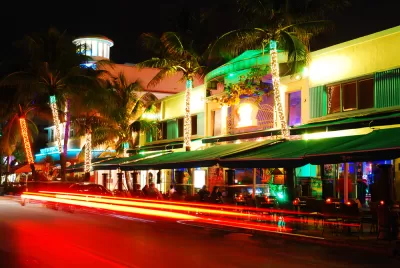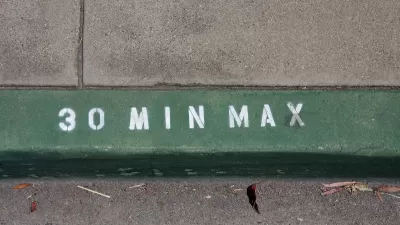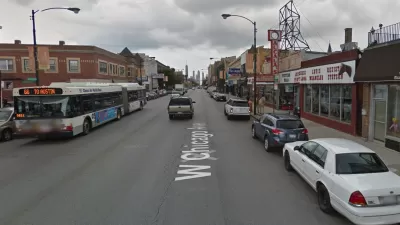Five panelists discussed the future of curbside parking and agree that there are technological and financial incentives to change priorities for these spaces.

A panel of transportation and logistics experts at the Vision Zero Cities Conference by Transportation Alternatives predicted continued and long-lasting changes in the way curbs, sidewalks, and curbside parking spaces are organized, managed, and prioritized. Since the incremental reopening of restaurants and other amenities since the onset of the coronavirus pandemic, space formerly dedicated to private vehicles is increasingly finding alternative uses.
But we have more than the coronavirus to thank for these shifting behaviors and innovations in the use of parking spaces. "That hopeful future might seem like a far-off dream for those who have sat through interminable community-board meetings where people have fought over the last inch of parking. But it’s probably achievable in the next 10 to 15 years — because technology and financial incentives will drive it," writes Eve Kessler, describing the panelists' insights.
Dynamic usage for curbside usage, according to the five panelists, will also make streets safer by reducing instances of vehicles stopping in bike lanes. The speakers heightened that technology could help drivers identify parking and avoid similarly dangerous situations. "Dawn Miller, head of policy and partnerships at the data firm Coord, said that mobile apps would soon direct deliverers — not just those in trucks, but also those in smaller vehicles — to available spaces in the last mile before a stop. Such precision would help eliminate hazards like parking in bike or bus lanes," reports Kessler.
Discussion about pricing for curb space is ongoing. Large delivery companies and small businesses alike stand to benefit from priced curb zones. "Pricing the curb would entail a balancing act for different users, the panelists agreed. Persons with disabilities, for example, should have complimentary access," Kessler writes.
FULL STORY: Vision Zero Cities: Experts Foresee Diverse Curbside Uses

Planetizen Federal Action Tracker
A weekly monitor of how Trump’s orders and actions are impacting planners and planning in America.

Map: Where Senate Republicans Want to Sell Your Public Lands
For public land advocates, the Senate Republicans’ proposal to sell millions of acres of public land in the West is “the biggest fight of their careers.”

Restaurant Patios Were a Pandemic Win — Why Were They so Hard to Keep?
Social distancing requirements and changes in travel patterns prompted cities to pilot new uses for street and sidewalk space. Then it got complicated.

Platform Pilsner: Vancouver Transit Agency Releases... a Beer?
TransLink will receive a portion of every sale of the four-pack.

Toronto Weighs Cheaper Transit, Parking Hikes for Major Events
Special event rates would take effect during large festivals, sports games and concerts to ‘discourage driving, manage congestion and free up space for transit.”

Berlin to Consider Car-Free Zone Larger Than Manhattan
The area bound by the 22-mile Ringbahn would still allow 12 uses of a private automobile per year per person, and several other exemptions.
Urban Design for Planners 1: Software Tools
This six-course series explores essential urban design concepts using open source software and equips planners with the tools they need to participate fully in the urban design process.
Planning for Universal Design
Learn the tools for implementing Universal Design in planning regulations.
Heyer Gruel & Associates PA
JM Goldson LLC
Custer County Colorado
City of Camden Redevelopment Agency
City of Astoria
Transportation Research & Education Center (TREC) at Portland State University
Camden Redevelopment Agency
City of Claremont
Municipality of Princeton (NJ)





























